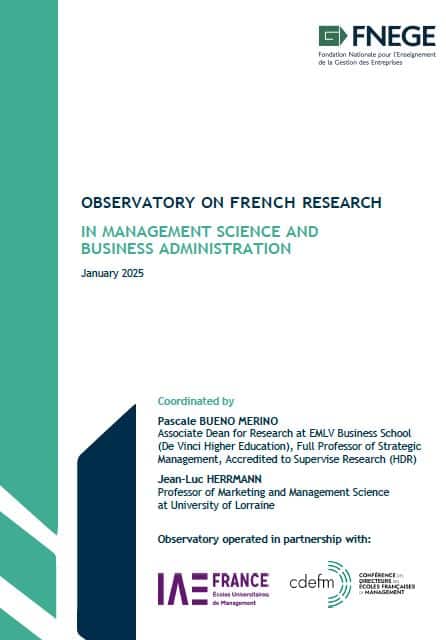- À propos
La FNEGE est une Fondation au service de l?excellence de la Formation et de la Recherche en Sciences de Gestion et Management en France.
- Actualités
Découvrez les actualités des écoles de management du Réseau FNEGE et leurs offres d?emploi :
Vous recrutez ? - Activités
Découvrez les grands secteurs d?activités de la FNEGE comme son programme CEFAG, ses tests de sélections et ses programmes internationaux et depuis, 2014, le programme étudiants-entrepreneurs (Pépite).
- Labellisations & Prix
La FNEGE valorise les travaux des enseignants-chercheurs en Sciences de Gestion par des labellisations et des Prix : pour leurs Ouvrages, leurs dispositifs pédagogiques, les thèses et les études de cas.
Ouvrages >Dispositifs pédagogiques >Thèses >Études de cas >Ouvrages >Dispositifs pédagogiques >Thèses >Études de cas > - Conseils, Audits & Formations
Découvrez nos différentes formations, nos programmes d?impact et notre commission anti-plagiat :
- Publications
La FNEGE publie régulièrement des études et observatoires sur l?enseignement supérieur de gestion en France, réalise tous les 3 ans, le Classement des Revues Scientifiques en Gestion et valorise les travaux des chercheurs sur sa plateforme de vidéos et podcasts (FNEGE Médias).

